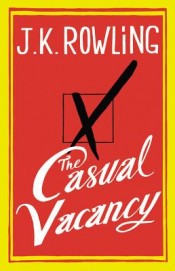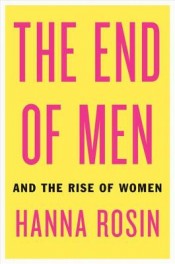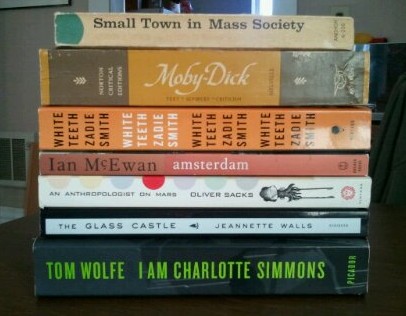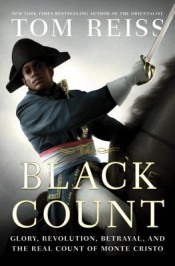
Happy Sunday, everyone! At the moment, I’m tapping out this post at a coffee shop near my parents’ house, after coming home for the weekend to do some volunteering. We’re heading out for a brunch/lunch in a couple hours, so I’m hoping to get some writing and shopping done this morning before stuffing my face at a breakfast buffet, yum.
I spent most of my reading time this week totally absorbed in The Casual Vacancy by J.K. Rowling. I’m calling this a post of “casual thoughts” rather than a review because I read too many reviews of the book before I read it to really have intelligent or articulate thoughts of my own. It feels more like my response to the book has been deeply impacted by both my love for Rowling’s Harry Potter series and all of the reviews I’ve read of the book so far.
The Casual Vacancy starts out dramatically, with the unexpected death of Barry Fairbrother, a member of the parish council (city council, essentially) of the town of Pagford. Fairbrother’s seat on the council opens up — hence the casual vacancy — and a battle breaks out between two factions on the council over who will fill the seat. The decision has big consequences for Pagford, which is currently in the midst of a debate about whether to disassociate the town with one section, “the Fields,” a poverty-stricken area much like the projects, and close a rehab clinic in the area. As the election and battle over the Fields heats up, anonymous posts start to appear on the council’s website from “The Ghost of Barry Fairbrother” that reveal the dark secrets of many residents of the town.
I’m one of the people, in the minority it feels like, who really enjoyed this book. Even if the author of the book wasn’t the author of one of my favorite book series of all time, I still think I would have made an effort to read it because the premise — what happens in a place after a dramatic event throws off a carefully calibrated equilibrium — appeals to me as a resident of a small town. Our politics aren’t as dramatic as those in Pagford, but there is something universal about the way problems grow quietly in the insulation of small town life that Rowling captures perfectly in both the premise, plot, and characters of A Casual Vacancy.
[continue reading…]
{ }

Title: The End of Men: And the Rise of Women
Author: Hanna Rosin
Genre: Nonfiction
Year: 2012
Publisher: Riverhead Hardcover
Acquired: From the publisher at Book Expo America
Rating: 




Review: In the 2008 recession, three-quarters of the 7.5 million jobs that were lost were lost by men. Women occupy just over half of the jobs in the United States, and more women than men are earning college degrees. The world is shifting to a post-industrial economy, an economy based on jobs that are better suited to women than men – at least that’s the argument that Hanna Rosin tries to make in The End of Men.
Unfortunately, The End of Men doesn’t quite deliver the answers and evidence to support Rosin’s dramatic claim. When I finished the book, it felt like Rosin was missing something essential to the argument, that the book’s reliance on statistics and big picture shifts in how society functions managed to overly simplify a world that is, in fact, much more complicated than the title of this book might suggest.
[continue reading…]
{ }

If you happened to miss the announcement, then here is some news: the finalists for the National Book Award were selected! Although the fiction list often gets a lot of the attention, I’ve always found the nonfiction list to be much more interesting (surprise, surprise!).
For one, there’s a lot more variety. On the fiction side, the nominees all fall into the general category of literary fiction — you don’t see any romance novels or thrillers getting recognized. But the nonfiction list has a ton of variety, featuring everything from the fourth volume of a celebrated biography of an American president to a posthumously published memoir set in the Middle East.
I got my nerd on last week over at Book Riot where I did a little bit of summarizing and guessing about how the awards would shake out and which of the fine nominees would be selected. I don’t always share my posts elsewhere on the web, but I’m particularly proud of this one and I’d love if you’d take a minute to read it.
Which of the National Book Award nominees are you rooting for?
{ }
 Happy Sunday! This week was one of my favorite bookish events of the year — our university library book sale. The selection at this sale is always extensive — and with paperbacks at $.50 and hardcovers at $1 — it’s hard not to leave without several books.
Happy Sunday! This week was one of my favorite bookish events of the year — our university library book sale. The selection at this sale is always extensive — and with paperbacks at $.50 and hardcovers at $1 — it’s hard not to leave without several books.
Here are the books I snagged (sorry for the crappy cell phone picture — I’m too lazy to pull out my good camera this morning):

I loved to use book sales to pick up books by authors I want to read but haven’t made the time for — Zadie Smith, Tom Wolfe, and Oliver Sacks — or books that I’ve heard good things about but haven’t made the time to read (The Glass Castle). The other picks, Amsterdam, Moby Dick, and Small Town in Mass Society, were impulse buys, but I’m optimistic they’ll be good reads.
[continue reading…]
{ }

Title: The Black Count: Glory, Revolution, Betrayal, and the Real Coute of Monte Cristo
Author: Tom Reiss
Genre: Narrative nonfiction
Year: 2012
Publisher: Crown
Acquired: From the publisher for review consideration
Rating: 




Review: Although the name “Alexandre Dumas” is probably most recognized as the name of the author of such great works as The Three Musketeers and The Count of Monte Cristo, the novelist Dumas actually shares the name with his father, General Alex Dumas, a mixed-race military leader in revolutionary France.
Alex — as he preferred to be called — Dumas was born to a black slave mother and a fugitive white Frenchman hiding out in Saint-Domingue. When Alex’s father emerged from his sojourn in the Caribbean he made his way back to France with his mixed race son to reclaim his family’s estate. Alex was raised the son of an aristocrat, and eventually made a name for himself because of his dashing good looks and skill with a sword. Much to his luck, Alex found himself in France during a revolutionary time, one of the earliest civil rights movements, which allowed him to advance through the ranks of the French army until the Black Count commanded more than 50,000 men and became a threat to the great Napoleon.
[continue reading…]
{ }








